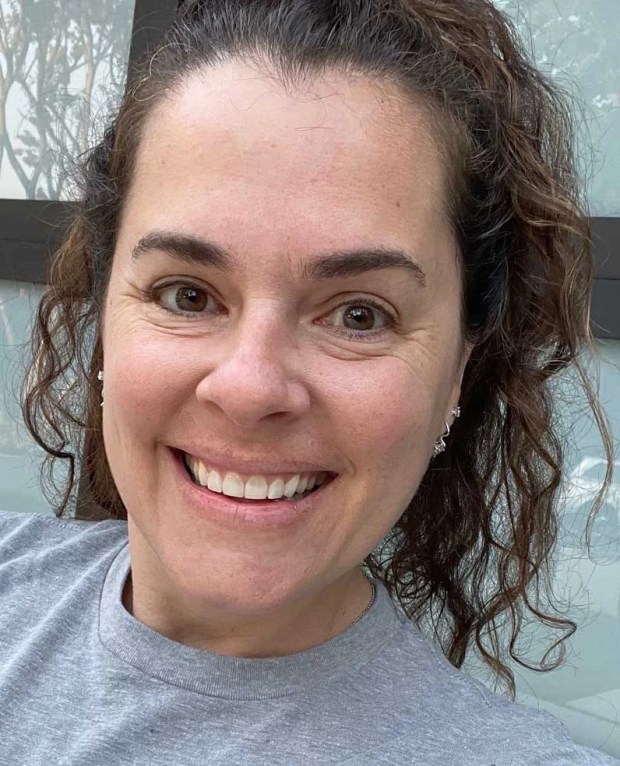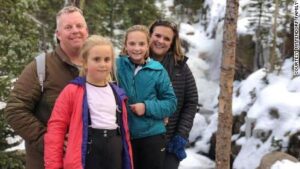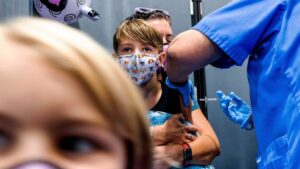
Her daughter and husband had already gotten their COVID-19 shots, as had she. The only one left was her 11-year-old son, who had made it known that he wished to get vaccinated as soon as he was eligible.
So when she learned last month that Pfizer-BioNTech was looking for more children to participate in clinical trials for its coronavirus vaccine, and not knowing at the time when the vaccine would actually become available to younger children, Jenna Schwartz left it up to her son to decide if he wished to take part in the trial.
“When I told him, he was like, ‘Right now? We can go right now?’” Schwartz recalled, describing his eagerness.
On Wednesday, Nov. 3, exactly three weeks after her son went in for his first shot, the family found out that the middle school student — who had reported no side effects — had received the actual vaccine and not a placebo as part of the trial. He is scheduled for his second shot on Friday.
Schwartz requested her son’s name be withheld from the article to protect him from the backlash she said she herself has experienced for speaking out in support of the vaccines.
One day after the Centers for Disease Control and Prevention granted emergency use authorization of the Pfizer vaccine for 5- to 11-year-olds, Schwartz — who is co-founder of a group called Parents Supporting Teachers, which advocates on issues in the Los Angeles Unified School District — explained why her family supports the vaccine rollout.
“I’m worried my child will get sick from COVID and miss more school after being out for a year and a half. I’m thrilled my child now won’t have to quarantine after being a close contact. I’m thrilled that it’s one more layer of protection when we see grandparents,” Schwartz said.
“I’m proud to have my children be safe, contributing members of society, and to teach them to listen to science and experts and not TV personalities and Facebook friends,” she added, referring to misinformation about the vaccines that some influencers have spewed or that have been spread through social media.
Meanwhile, her son said in a text that, for him, being vaccinated means feeling safer and being able to “get back to living a normal life.”
“The vaccine will help us move forward with that,” he said. “I’m excited to be able to go on a plane again and visit my relatives who live in other states.”
Schwartz said it was both her children’s choice to get vaccinated. Her daughter, who is 13, received her first shot the day after she became eligible for the vaccine.
Although Schwartz has embraced the COVID-19 vaccines, a number of parents remain hesitant about exposing their still-developing children to a relatively new vaccine.
About one in four parents polled earlier this month as part of a Kaiser Family Foundation survey said they would have their children vaccinated “right away,” while about three in four parents were roughly split between taking the wait-and-see approach and saying they “definitely” would not have their kids vaccinated, according to The Associated Press.
In recent months, some LAUSD parents have said that while they’re not opposed to vaccines in general, they are concerned about potential long-term side effects on children whose bodies are still developing.
Natalie Lahiji, a mother to three LAUSD students in elementary school, said last month ahead of a statewide walkout to protest student vaccine mandates that she and her husband have both gotten their COVID-19 shots, and that their children regularly receive their flu shots. But she wants to wait until the coronavirus vaccines have been on the market longer before considering having her children get the shots.
“Perhaps I might change my mind in a few years when it’s been studied further,” she said.
Some have also questioned whether vaccines for younger children are necessary, given that children are less likely to be hospitalized or die if they contract the virus. Of the 5- to 11-year-olds who are hospitalized because of the coronavirus, nearly 70% suffered from other serious medical conditions, including asthma and obesity, according to federal tracking.
Some parents have also raised concerns about their children, especially among boys, developing myocarditis, an inflammation of the heart muscle, after getting vaccinated.
During a report to the LAUSD school board last month, a county public health administrator said the benefits of the vaccines outweigh the risks. He cited CDC data showing that among 16- and 17-year-olds, the occurrence of a myocarditis case was 8 per 1 million Pfizer vaccine doses for females and 73 per 1 million doses per males nationally. At the same time, for every 1 million vaccine doses, the number of COVID-19 cases prevented were 77,800 among females and 56,700 among males, and hospitalization preventions were 520 among females and 500 among males, he said.
Advocates of the vaccines say they’re frustrated by the number of deaths they believe could be prevented if more people were inoculated.
There have been more than 8,300 hospitalizations, with about a third needing intensive care, among 5- to 11-year-olds nationwide. About 150 children in this age group have died, according to the U.S. Food and Drug Administration.
In Los Angeles County, there have been nearly 80,000 coronavirus cases among children ages 5 to 11 since March 2020, with nearly 400 hospitalizations.
The American Academy of Pediatrics recommends children 5 and older without certain health issues to get vaccinated.
The county’s health department began vaccinating children in this age group on Wednesday. An estimated 900,000 children ages 5 to 11 are eligible for the Pfizer vaccine in L.A. County, according to the department.
The Los Angeles Unified School District will also have vaccines for children as young as 5 available at some school sites starting next week.
The Associated Press contributed to this report.



















